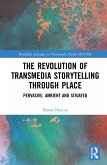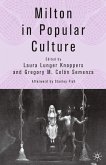What does it mean to 'think differently'? What are the conditions under which original thought can take place and what are the obstacles to it? The ability to create thoughts is what lies at the base of philosophy and political theory and practice. One cannot hope to change the world, or even adequately critique it, without the possibility of the new in mental life. The Political Mind seeks to explore the possibility of thinking differently through connecting neuropsychological material on consciousness, nonconsciousness and affect to political theory. It spans many diverse disciplines: from hard-edged neuropsychology to sociology, economics, political theory and Eastern and Western philosophy. Its originality lies in its ability to draw meaningful connections between such disparate literatures, weaving a coherent whole. It then applies the concepts created to the currently popular topics of consumerism and the anti-capitalist and anti-globalisation movements. Key Features: * Unique in drawing connections between neuropsychology and political theory * Addresses an enormous breadth of material * Relevant to those interested in the anti-globalisation and anti-capitalism movements
This book brings together academics, writers and politicians to explore the range and nature of the media in Scotland. The book includes chapters on the separate histories of the press, broadcasting and cinema, on the representation and construction of Scotland, the contemporary communications environment, and the languages used in the media. Other chapters consider television drama, soap opera, broadcast comedy, gender, the media and politics, race and ethnicity, gender, popular music, sport and new technology, the place of Gaelic, and current issues in screen fiction. The book offers a comprehensive picture of the media in Scotland and is the first to do so. It raises a number of important questions about how Scotland presents itself at home and abroad as well as analyzing questions of politics, economics and governance. Among the contributors are David Bruce, Myra Macdonald, Brian McNair, Hugh O'Donnell, Mike Russell, Philip Schlesinger and Brian Wilson. Neil Blain is Chair and Head of Department of Film and Media Studies, University of Stirling. David Hutchison is Research Fellow in Media Policy, Glasgow Caledonian University.
This book brings together academics, writers and politicians to explore the range and nature of the media in Scotland. The book includes chapters on the separate histories of the press, broadcasting and cinema, on the representation and construction of Scotland, the contemporary communications environment, and the languages used in the media. Other chapters consider television drama, soap opera, broadcast comedy, gender, the media and politics, race and ethnicity, gender, popular music, sport and new technology, the place of Gaelic, and current issues in screen fiction. The book offers a comprehensive picture of the media in Scotland and is the first to do so. It raises a number of important questions about how Scotland presents itself at home and abroad as well as analyzing questions of politics, economics and governance. Among the contributors are David Bruce, Myra Macdonald, Brian McNair, Hugh O'Donnell, Mike Russell, Philip Schlesinger and Brian Wilson. Neil Blain is Chair and Head of Department of Film and Media Studies, University of Stirling. David Hutchison is Research Fellow in Media Policy, Glasgow Caledonian University.







